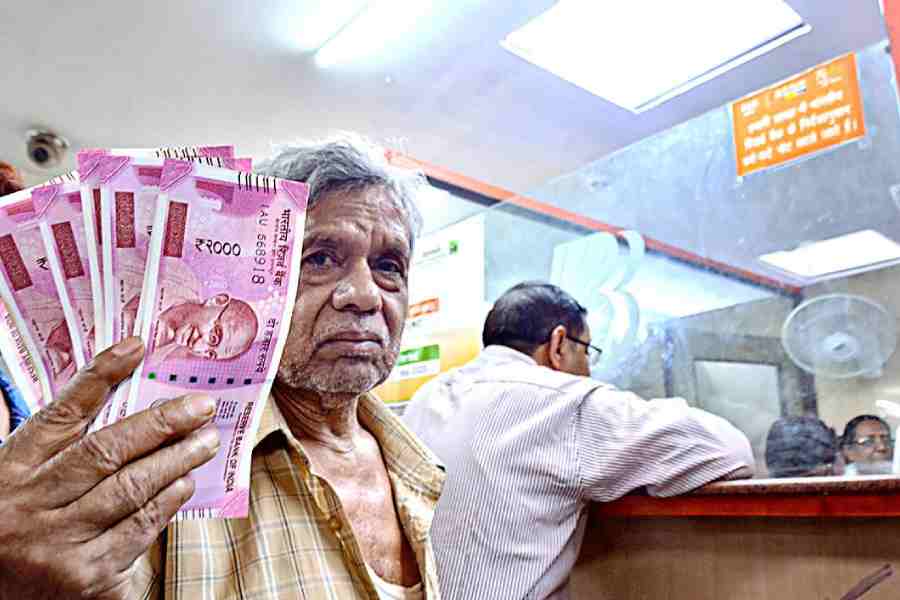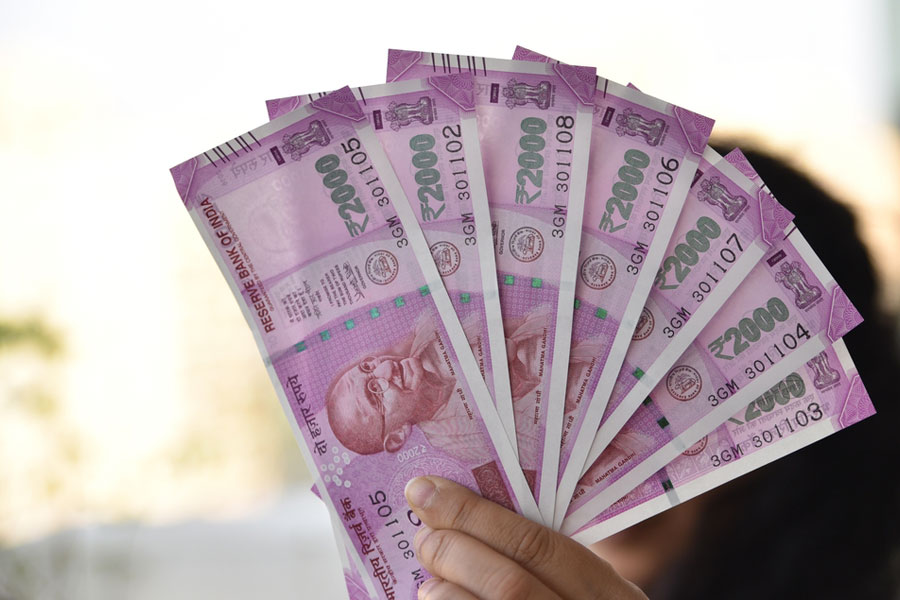Currency exchanges in the UAE have started to shun the Indian rupee, which was readily acceptable until the Reserve Bank of India decided to suddenly pull the plug on the Rs 2,000 note.
Enquiries made in the region indicate that none of these nations has officially asked its forex dealers to stop changing Indian rupees after last Friday’s shock decision.
But the situation on the ground has changed – and travellers from India, who once marvelled at the ease with which they could change wads of Indian currency into riyals and dirhams, are being politely turned away.
“We are not accepting Rs 2,000 notes since it is very difficult for us to dispose of them. Although there is no issue with Rs 500 notes, currency exchanges are very reluctant to accept them as well because of the general sentiment against Indian currency due to this decision (scrapping of the Rs 2,000 note),” Albin Thomas, general manager of Hadi Express Exchange, told The Telegraph over the phone from Dubai on Monday.
“The simple reason we are not accepting Rs 2,000 notes is that we cannot get them exchanged here since the commercial banks in the UAE handle only AED-denominated accounts. So that leaves us with the only option of carrying them to India, which again is a cumbersome process. Hence, we don’t want to take such a risk.”
The AED is the local currency of the UAE.
The Reserve Bank of India has not helped matters by refusing to clarify how long it intends to grant legal tender status to the Rs 2,000 notes, which must be deposited with banks or exchanged by September 30.
It is evident that currency exchangers in the Gulf countries are repelled by the whimsical decisions taken by the RBI. There has been suspicion that the decision was taken at the behest of the Narendra Modi government, but RBI governor Shaktikanta Das has refused to confirm this.
“Let us not discuss internal processes,” Das had told reporters in Delhi on Monday in a terse response to a pointed question.
An employee with Dubai Duty Free (DDF) said retail outlets at the international airport had stopped accepting the Rs 2,000 note but there was no bar on transactions with lower-denomination notes.
It was in 2019 that the two international airports in Dubai — Al Maktoum International Airport (also known as Dubai World Central) and Dubai International Airport — started accepting the Indian rupee even though it is not a freely convertible currency.
The Indian rupee is among the 16 foreign currencies now accepted at DDF outlets.
The minimum denomination that the DDF is now accepting is Rs 100 and the maximum is Rs 500. However, money changers at the airport readily accept a minimum denomination of Rs 50 for conversion into dirhams.
In 2022, DDF reported annual sales of Dhs 6.339 billion or $1.74 billion, representing a 78 per cent rise over the previous year. While perfumes were the top-selling category, they were followed by liquor, gold, cigarettes-and-tobacco, and electronics. A very tiny sliver of these transactions would have taken place in Indian rupees.
Throwback to 2016
The move to shun the Indian rupee at currency exchanges across the Gulf is a throwback to 2016 when the Modi government had scrapped the Rs 500 and Rs 1,000 notes— thereby shredding more than 85 per cent of all the currency in circulation by value.
The only way to re-monetise quickly was to issue the Rs 2,000 note — which many critics felt would undermine the stated objective of the currency cull, which was to unearth black money in the economy.
The plan failed miserably and the Rs 2,000 note gradually became a storehouse of value and was stashed in vaults and other hidey-holes, away from the gaze of the taxman.
Over 99.3 per cent of the scrapped Rs 500 and Rs 1,000 notes came back into the financial system and were shredded. It is because of that sobering experience that the RBI and the government are not making any claims about ferreting out black money this time while the authorities scout for ways to plug any loopholes that were misused the last time.
“The currency exchanges had suffered losses running into millions of AED since we were taken by surprise with the demonetisation (in 2016). That left us with large stocks of the demonetised Indian currency that we found very difficult to remit to banks in India,” Thomas said.
It had always been very easy to exchange Indian rupees over the counters at currency exchanges in the UAE and other Gulf states.
“Exchanging Indian rupees is not something of recent origin. People travelling back from India often have some currency that they would want to exchange for AED,” Thomas said.
“We ask no questions for Indian rupee equivalent of up to AED 3,500 (almost $1,000, since the AED is pegged to the US dollar at 3.67). But we insist on some form of identity like the Emirates ID card or driver’s licence for amounts above the equivalent of AED 3,500.”
Thomas reckons that more than 90 per cent of all the Indian rupees traded in currency exchanges across the Gulf are sales and not purchases.
“Less than 10 per cent of the Indian rupees that we trade in this region are retail purchases from customers. More than 90 per cent are sales from us to those travelling to India, especially Indian expats, who might want to keep some cash to get an airport cab in India or for some sundry expenses,” he said.
While it is true that Indian rupees purchased from retail customers form a small part of the currency stock at these exchanges, a huge chunk comes by way of direct imports by large organisations.
“We are allowed to import Indian rupees (like every other currency). But only large currency exchanges can afford to do so,” Thomas said.











